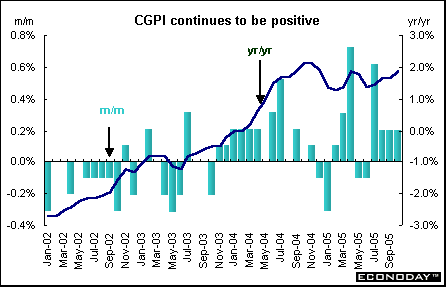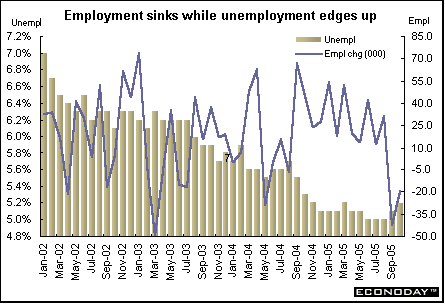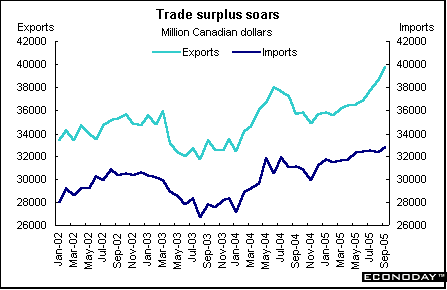After a week of heady gains in equity markets it was to be expected that things would calm down somewhat last week - and they did. Gains were more muted after the frenzy of the prior week as the earnings report season wound down. On the week, the Topix and STI barely declined while the S&P/TSX composite lost ground on falling oil prices which, in turn could have a negative impact on Canadian economic growth. Only the South Korean Kospi of the indexes followed here has managed to regain all of October's losses.
Foreign exchange traders were focused on interest rate spreads as the Federal Reserve continues to raise rates while others such as the Bank of England and the European Central Bank remain on hold. Rhetoric about the ECB's policy interest rate continues to escalate as analysts debate whether there is a divergence of opinion among governing council members and what that could mean for future decision making.
Global Stock Market Recap

Europe and Britain
The FTSE, CAC and DAX continued to increase after their October losses. The FTSE has regained all but 12 points that were lost during October while the CAC and DAX still have a way to go. The impetus for the rally was the continuing decline in crude oil prices. The price decline was bolstered Thursday after the International Energy Agency reduced its forecast for 2006 oil consumption for a fourth straight month and warmer-than-usual U.S. weather curbed demand. Chemical makers such as BASF AG paced gains. Petroleum products are the major input for chemical manufacturers who have been hit hard by the soaring prices. The CAC, despite the civil unrest in France, gained 0.8 percent while the DAX turned a blind eye to the ongoing difficulties in forming a new government and gained 1.9 percent. Energy stocks including Royal Dutch Shell were the only group to decline. Earlier in the week, the FTSE was pressured on ex-dividend trading but rallied to gain 0.8 percent.

As expected, the Bank of England monetary policy committee left their key interest rate unchanged at 4.5 percent. The MPC had lowered rates by 25 basis points at their August meeting. The spread between U.S. and UK rates is now only 50 basis points. The MPC is caught between weak growth and an increasing rate of inflation. Inflation has been above the Bank's inflation target of 2 percent for three months. The latest reading in September was 2.5 percent when compared with last year. But there are some tentative signs that the economy is recovering. Retail sales data were better than expected and the housing market appears to be picking up. But many consumers remain highly indebted, manufacturing is weak, unemployment is rising, and the stimulus from increased government spending on domestic demand is fading. The Bank followed its normal practice of making no statement accompanying the decision to leave rates unchanged. Rather, Bank of England watchers will have to wait until the minutes of the meeting are released on November 23rd.

Asia/Pacific
Stocks were mixed for most of last week but ended on a positive note. Contributing to the upbeat attitude Friday were lower oil prices combined with more positive U.S. consumer confidence. The icing on the cake was that Japan's initial estimate of third quarter gross domestic product was better than expected by forecasters - even though it was much weaker than second quarter growth (see indicator scoreboard below). The Nikkei is now at its highest level since May 2001 helped by gains in domestically focused stocks with many exporter stocks either flat or showing moderate growth. Exporters' stocks were helped by the rebound in U.S. consumer confidence. Consumer confidence had plunged after hurricanes Katrina and Rita and the soaring oil prices that followed. Foreign investors continue to be major investors in domestically focused stocks, which are responding to signs that the economy is improving.

Currencies
Foreign exchange traders and investors sold the euro to a two-year low against the U.S. dollar as rioting and vehicle burning that had afflicted Paris spread across France (and even encouraged a brief flare-up on the streets of Brussels). The euro fell sharply as reports raised concerns that the trouble may be spreading to ethnic minority communities across the continent, heightening political risk for investors in the EMU. The euro fell below $1.17 to the dollar - the lowest in 2 years. On Friday it hovered around that level. This was good news for exporters since the lower euro makes their products more price-competitive abroad. Adding to pressures on the euro were signs that the European Central Bank governing council was split on whether the Bank should move up its key interest rate, which has been at 2 percent since June 2003. ECB President Jean Claude Trichet has said that rates could change at any time.

With Bank of Japan and Finance Ministry officials content to watch yen strength erode, the currency hovered around ¥118 to the dollar. On Friday, the yen responded to the better-than-expected GDP report and was up slightly on the day in overseas trading (U.S. markets were closed). Even though the Bank of Japan is expected to eventually reinstate an interest rate - the current rate is near zero - speculation is that the gap with U.S. rates will continue to widen.
The pound was hurt last week by broadly soft economic data which kept open the possibility that the Bank of England would cut rates once more in the first quarter of 2006, even as others are increasing rates or at least preparing to do so. The British Retail Consortium reported yet another drop in like-for-like retail sales, even though they slipped only by 0.2 percent on the year to October - better than the 0.8 percent drop reported in September. A factor that has helped the pound over the last several years has been higher UK interest rates relative to those in the U.S. and EMU. That has made the UK a good place to put funds but an expensive place to borrow. But now the spread has narrowed dramatically and has reduced that advantage.

The main focus for the foreign exchange market has been on the interest rate differentials created by the likely trajectory of Federal Reserve monetary policy. Other central banks, including the European Central Bank and Bank of Japan, are expected to tighten monetary policy in the near to medium term, but none are seen as matching the Fed, which has now made 12-consecutive 25-basis-point rate increases to 4 percent. Expectations are that U.S. rate will hit 5 percent in 2006.
Indicator scoreboard
EMU - September real, workday and seasonally adjusted retail sales were down 0.4 percent but up 0.7 percent when compared with last year. Weak retail sales in Germany more than offset increased sales in France and Spain. Food sales were up 0.2 percent while non-food sales were down 0.9 percent.

Germany - September seasonally adjusted industrial output jumped by 1.2 percent and was up 3.3 percent when compared with last year. Manufacturing output was up 1.4 percent thanks to an increase of 2.8 percent for investment goods. Energy was up by 0.7 percent while construction was down by 2.5 percent. Excluding construction, output was up 1.3 percent and 3.7 percent on the year.

September seasonally adjusted merchandise trade surplus widened to €14.8 billion. The weaker euro combined with faster global growth lifted exports for cars and machinery in the U.S. and Asia. Exports were up 2.5 percent while imports were down 1.3 percent.

France - Third quarter flash gross domestic product was up 0.7 percent on the quarter. As with all flash estimates, no detail on components is available.

September industrial output was up 0.2 percent and 0.2 percent when compared with last year. Manufacturing output was up 0.8 percent and 0.4 percent on the year. Auto output was up 2.7 percent while capital goods output was up 1.3 percent and consumption goods climbed 1.1 percent. However energy goods output was down 1.9 percent and food processing declined by 1.1 percent.

September merchandise trade deficit eased to €1.724 billion from €2.232 billion in August. Exports were up 4.5 percent. Auto exports jumped by 7 percent while capital goods exports soared 15 percent thanks to large transportation contracts. Imports were up 2.7 percent. Capital goods imports were up 8 percent and consumer nondurables were up 3 percent.

Britain - September merchandise trade deficit narrowed to £5.4 billion from the record breaking £5.9 billion in August. The deficit reduction was attributed to increased exports of North Sea oil. Trade in oil, which accounts for about 7.5 percent of the $2 trillion economy, was in deficit for a second consecutive month and the first time since 1980. The shortfall narrowed to 201 million pounds from a revised 507 million pounds as oil exports rebounded 20 percent in September after the completion of some maintenance on oil fields in the North Sea. Overall exports increased 2 percent while imports declined 0.4 percent. Exports to Switzerland, India, Dubai and the U.S. increased. Trade with the U.S. showed a surplus of £965 million, up from £514 million in August. The goods and services deficit, which ballooned to a record £5.6 billion in August, narrowed to £3.9 billion. The August figures included a £1.4 billion pounds payment by Lloyd's of London for insurance claims after Hurricane Katrina which reduced the surplus on services. The September trade data continue to include adjustments to take account of distortion from illegal trading in goods such as mobile phones and computer parts by criminal gangs seeking to avoid tax. Officials announced Aug. 9 they had discovered the problem after noticing a spike in exports to non-European countries such as Nigeria in June.

September industrial output was down 0.3 percent and 0.8 percent when compared with last year. Manufacturing output slumped by 0.3 percent and was down by 0.8 percent on the year. Nine out of 13 sectors were down with chemicals and man-made fibers leading the declines. Oil and gas output jumped 7.4 percent thanks to the completion of maintenance work.

Asia
Japan - Third quarter gross domestic product was up 0.4 percent and 2.9 percent when compared with the same quarter a year ago. In the second quarter, GDP was up 0.8 percent on the quarter and 2.3 percent on the year. On an annualized basis, GDP was up 1.7 percent in the third quarter and 3.3 percent in the second. Third quarter private consumption - which accounts for more than 50 percent of GDP - was up 0.3 percent and weaker than the 0.7 percent in the previous quarter. Capital expenditure rose 0.7 percent, much weaker than the growth of 3.4 percent in the second quarter. Imports were a major drag on the economy thanks to soaring oil imports. The GDP deflator, a measure of price changes, fell 1.1 percent after declining 0.9 percent in the previous quarter, which shows that deflation persists in Japan's economy.

October corporate goods price index was up 0.2 percent and 1.9 percent when compared with last year. Prices for chemicals and related products as well as petroleum and coal products were up while electric power, gas and water prices were down.

Australia - October employment declined by 19,800 jobs while the unemployment rate inched up to 5.2 percent from 5.1 percent in the prior month. Full time employment sank 60,800, the largest monthly decline since November 1991, but part time positions were up 41,000. The participation rate edged down to 64.4 percent from 64.5 percent in September.

Americas
Canada - September merchandise trade surplus soared to C$7 billion from C$6.4 billion in August. Exports jumped 2.8 percent while imports were up 1.4 percent. Most of the export gain was due to higher natural gas prices of shipments to the U.S. The trade surplus with the U.S. was C$10.7 billion as a result. Crude oil imports soared by 17.9 percent and accounted for most of the increase in total imports. Trade deficit with other than the U.S. widened to C$3.7 billion from C$3.0 billion in August. Exports to countries other than the U.S. were down slightly while imports were up 5.6 percent principally because of more consumer goods from China and higher crude petroleum from Saudi Arabia and Russia.

Bottom line
Last week's 'flash' gross domestic product release showed that the economy in France improved in the third quarter while preliminary GDP data for Japan showed that the economy grew at a slower rate. So it is with interest that this week's flash GDPs for Germany and the entire EMU will be evaluated. But the headline event for the week is in the U.S. when Federal Reserve chair nominee Ben Bernanke testifies at his congressional confirmation hearing. Central bank watchers worldwide will be parsing every word.

